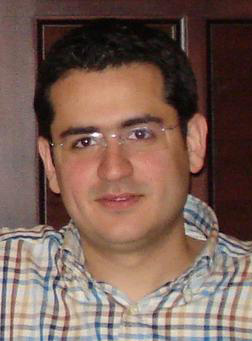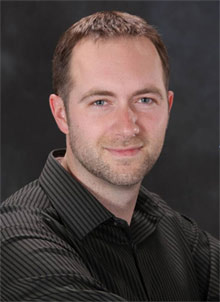The Paul G. Allen Family Foundation’s Allen Distinguished Investigator (ADI) program seeks to fund a select group of investigators to pursue new, pioneering research in academic settings that collectively move the needle towards answering broad scientific questions. ADIs approach their research in novel, creative and ambitious ways to shed light on the curious, the unconventional and the unexpected.
Today the first cohort of Allen Distinguished Investigators in Artificial Intelligence were announced. The focus is on three fundamental artificial intelligence topics: machine reading, diagram interpretation and reasoning, and spatial and temporal reasoning.
Five individuals or teams were selected for ADI awards – three from UW CSE:
-
UW CSE’s Ali Farhadi and UW EE’s Hannaneh Hajishirzi will receive $1.2 million to support an effort to teach computers to interpret diagrams the same way children are taught in school. Diagram understanding is an essential skill for children since textbooks and exam questions use diagrams to convey important information that is otherwise difficult to convey in text. Children gradually learn to interpret diagrams and extend their knowledge and reasoning skills as they proceed to higher grades. For computers, diagram interpretation is an essential element in automatically understanding textbooks and answering science questions. The cornerstone of this project is its Spoon Feed Learning framework (SPEL), which marries principles of child education and machine learning. SPEL gradually learns diagrammatic and relevant real-world knowledge from textbooks (starting from pre-school) and uses what it’s learned at each grade to learn and collect new knowledge in the next, more complex grade. SPEL takes advantage of coupling automatic visual identification, textual alignment, and reasoning across different levels of complexity.
-
UW CSE’s Jeff Heer and UC Berkeley’s Maneesh Agrawala will receive $1.5 million to study the computational interpretation of data-driven diagrams. For hundreds of years, humans have communicated through visualizations. While the world has changed, we continue to communicate complex ideas and tell stories through visuals. Today, charts and graphs are ubiquitous forms of graphics, appearing in scientific papers, textbooks, reports, news articles and webpages. While people can easily interpret data from charts and graphs, machines do not have the same ability. Agrawala and Heer will develop computational models for interpreting these visualizations and diagrams. Once machines are better able to “read” these diagrams, they can extract useful data and relationships to drive improved information applications.
- UW CSE’s Luke Zettlemoyer will receive $1 million to study semantic parsing for knowledge extraction. The vast majority of knowledge and information we as humans
have accumulated is in text form. Computers currently are not able to figure out how to translate that data into action. Zettlemoyer is building a new class of semantic parsing algorithms for the extraction of scientific knowledge in STEM domains, such as biology and chemistry. This knowledge will support the design of next-generation, automated question-answering (QA) systems. Whereas existing QA systems, including IBM’s Watson system for Jeopardy, have been very successful, they are typically limited to factual question answering. In contrast, Zettlemoyer work aims to, in the long term, enable a machine to automatically read any text book, extract all of the knowledge it contains, and then use this information to pass a college-level exam on the subject matter.
An open call-for-proposals was announced in early March. Proposals were reviewed by the ADI Panel of Experts, which then made recommendations to the Foundation Board. UW CSE’s extraordinary showing is testament to our emergence as a major force in modern artificial intelligence.
Read the announcement from the Paul G. Allen Family Foundation here. GeekWire here.
Read Oren Etzioni’s post “The Next Frontier of Artificial Intelligence Research” here.




